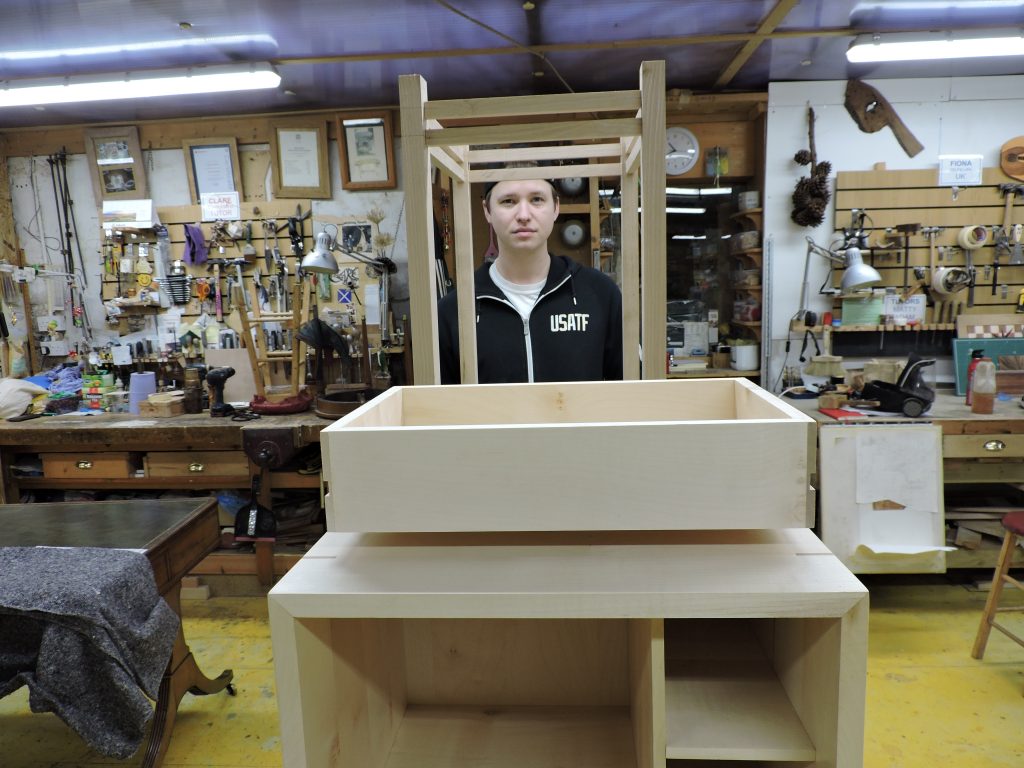Christian Burt from Portland, Oregon is influenced by far-flung woodworking philosophies and his Japanese tea cabinet is already shaping up to be a work of art.
Christian initially studied photography, then worked on an organic farm growing a variety of soft fruits, before deciding to train for a more hands-on career.
Although he came to the Chippendale school on our professional course with no experience in working with wood, he is someone who is practical and likes to work with his hands.
With his Japanese tea cabinet, he is also demonstrating a clear understanding of the intricacies and practicalities of design.
Christian also possesses something else: the talent and confidence to visualise a complex design, and then to plan and execute that design.
While his cabinet, in sycamore and beech, incorporates complexity, including tea drawers and compartments for cups and tea kettle, the real challenge will be the limewood kumiko front panel.
Kumiko is the ancient Japanese technique of assembling pieces of wood without using nails. Grooves, holes and projections are added to thinly shaven strips of wood, which are assembled piece by piece whilst adjustments are made using tools such as planes, saws and chisels.
It’s a huge challenge and steep learning curve, but will create a piece of furniture with both beauty and absolute purpose – the twin aims that Christian is looking to achieve.
After graduation, Christian intends to return to Oregon and pursue a new career in furniture restoration and design.
